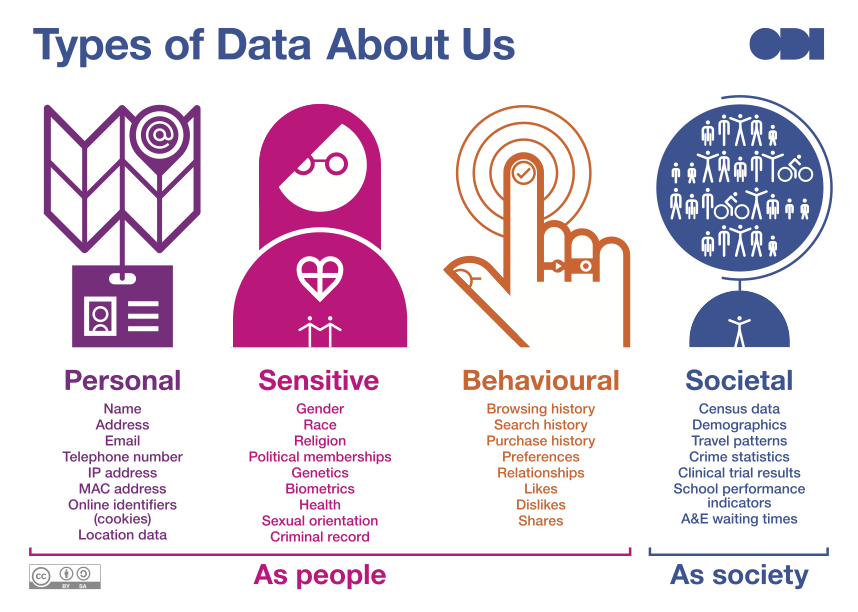
The RSA has today published the report: 'Talking about data about us: towards a global and local conversation'.
This leads on from our work last year in collaboration with the RSA and Luminate – we produced a report, video, summary and podcast for the About Data About Us project.
The project revealed that among the people we spoke with, there is a good understanding and some strong opinions regarding the collection, use and value of ‘data about us’. This far exceeded what many experts in the data policy space expected to hear.
Since publishing our 2019 report we have talked with policymakers and experts about the research in meetings and at public events; including two successful conversations at the Conservative and Labour Party Conferences last year.
While it’s good to talk, our project was designed to listen, learn and share the views of others.
With that in mind, the ODI, RSA and Luminate reconvened in March 2020 and collaborated with the German not-for-profit think tank Das Progressive Zentrum to host two half-day workshops in London and Berlin.
We presented our work and listened to the views of organisations including the Information Commissioner’s Office, Open Knowledge Foundation Deutschland, the Department for Culture Media and Sport, Google, Telefonica Germany, Civil Liberties Union for Europe, Centre for Data Ethics and Innovation, and the Freie Universitat Berlin.
We asked participants – as we had previously asked the public – to discuss their personal thoughts and feelings on data, rights, and ownership. We presented and discussed our research, and sought feedback on what the project could do to stimulate wider conversation in their work.
Just as in our original public conversations, points regarding honesty and transparency, rights and responsibilities, agency and control, compliance and enforceability and context and fairness were given as critical facets of the debate and defined as areas where there could be improvement or strengthening of rights.
What's next for data rights within the UK?
Participants also raised questions about the future of the UK’s data protection and alignment with the General Data Protection Regulation (GDPR) since Brexit. This was discussed in Berlin with some suggesting that Brexit could be an opportunity for further strengthening of the GDPR.
As rights and protection were considered essential by the public and the experts we spoke to, we strongly support the opportunity to retain and strengthen the regulation. This would be a chance to develop some of the key requests from the public, including:
- more agency over how data about us is used
- more control over when we opt in (as opposed to opt out) of data sharing
- more control and insight into how automated decisions are made about us.
Such an opportunity would also help develop data rights for groups and employees, as well as individuals. Furthermore it could help improve data literacy and the way we discuss, categorise and identify what data about us is being asked for, for what purpose and to whose benefit.
Literacy and language
A common problem when discussing ‘data’ is that the word can often be seen as a catch-all, yet not all data is the same. Being able to identify and talk about the type of data we are being asked to share is important to enable meaningful engagement. To try and address this we created the ‘Types of Data About Us’ graphic, which we presented to the participants.

At the ODI we have been using the graphic as part of our wider work including recently with Co-op in relation to building trust in data. It was great to hear that the participants of these sessions saw it is a useful tool to “help frame conversations around use of shared data”, and that it would be used by one participant’s organisation to help with “definitions to inform [their] approach”.
In summary
The opportunity for us to disseminate and discuss our findings to a wider audience outside of the UK and to hear the different areas of emphasis and concern on data policy from London and Berlin has been really useful and informative.
While there was a lot of common ground, it was interesting to hear the participants in Germany place emphasis on privacy, while in the UK the focus on the complexity of ownership was prevalent.
All of us involved in the project were encouraged to hear that stronger data rights are widely supported, particularly in relation to people’s autonomy, awareness of how decisions are made and how we can improve data rights for groups as well as individuals.
What next?
There are many challenges ahead, but what this project has shown is that people and experts agree that rights trump ownership. That access to data is not just about making a decision about ourselves but also about the people we know. That autonomy remains essential. And that how we talk about data – by breaking it down into different types – can enable greater awareness than just referring to data as a whole. This move alone has the potential to help people understand which data about them can benefit society, which data benefits them as individuals and which data might benefit a company.
With greater understanding comes greater engagement and as the use of data about us grows ever more prevalent, ensuring that people are clear on what data is being used, why and for whose benefit is essential. Data rights and data literacy sit at the heart of that.
We are pleased that the About Data About Us work has kick started the conversation.
If you are interested in exploring any of the topics discussed here, please contact us to arrange a call. We offer a range of data-related consultancy and advice services, as well as established and bespoke training courses.